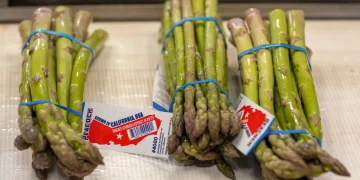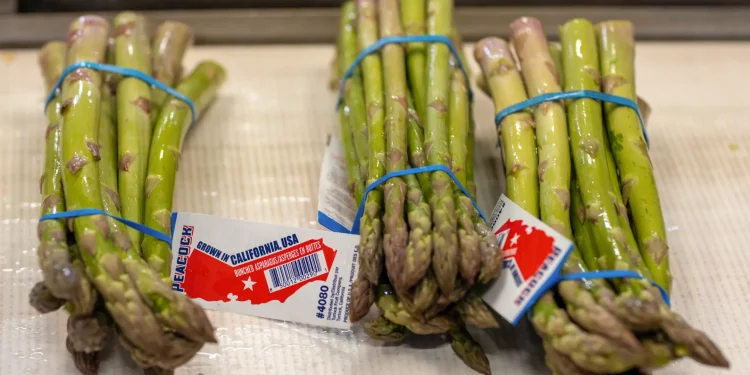Insights into the Labor-Intensive World of Asparagus Farming in the Golden State
Farmers, agronomists, entrepreneurs, and industry stakeholders across California are grappling with the challenges facing the asparagus industry. Explore the complexities of this once-thriving sector and gain valuable perspectives on the future of asparagus cultivation in the state.
Article:
In the sprawling fields of California’s San Joaquin Valley, the future of the state’s asparagus industry hangs in the balance. Against the backdrop of declining acreage and mounting labor costs, farmers like Aaron Barcellos of A-Bar Ag Enterprises in Firebaugh are confronting the harsh realities of an industry in flux.
As one of the last remaining asparagus producers in the state, Barcellos embodies the resilience and determination of California’s agricultural community. With each meticulously hand-cut spear of asparagus, he and his team defy the odds, striving to uphold the tradition of excellence that defines California-grown produce.
However, the road ahead is fraught with challenges. The decline of California’s asparagus industry is a multifaceted issue, rooted in factors ranging from labor costs to global market dynamics. Despite its historical significance and once-thriving presence in the state, asparagus now faces an uncertain future, overshadowed by imported alternatives and shifting consumer preferences.
At its peak, California boasted tens of thousands of acres dedicated to asparagus cultivation. Today, that number has dwindled to a fraction of its former glory, signaling a sobering decline for an industry that was once synonymous with the Golden State’s agricultural prowess.
Labor-intensive practices, including hand-harvesting and meticulous processing, contribute to the soaring costs associated with asparagus production. With labor accounting for a significant portion of production expenses, farmers are grappling with the economic viability of cultivating this cherished vegetable.
The advent of trade liberalization agreements, such as NAFTA, further exacerbated the challenges facing California’s asparagus industry. Increased import competition from countries like Mexico and Peru, coupled with regulatory changes impacting agricultural labor, has placed immense pressure on local growers.
Despite these obstacles, dedicated farmers and industry stakeholders remain committed to preserving California’s asparagus legacy. Through innovation, collaboration, and a steadfast dedication to quality, they are charting a path forward in an increasingly competitive landscape.
As consumers, retailers, and policymakers grapple with the complexities of the modern food system, the plight of California asparagus serves as a poignant reminder of the delicate balance between tradition and progress. By supporting local growers and embracing the rich heritage of California agriculture, we can ensure a vibrant future for this iconic vegetable and the communities it sustains.
































